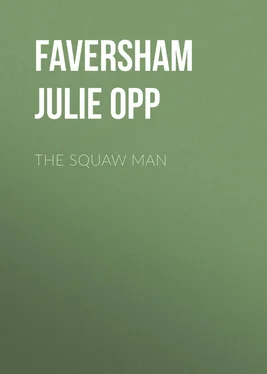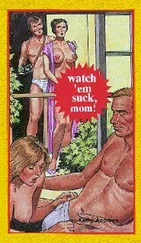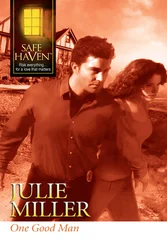Julie Faversham - The Squaw Man
Здесь есть возможность читать онлайн «Julie Faversham - The Squaw Man» — ознакомительный отрывок электронной книги совершенно бесплатно, а после прочтения отрывка купить полную версию. В некоторых случаях можно слушать аудио, скачать через торрент в формате fb2 и присутствует краткое содержание. Жанр: foreign_antique, foreign_prose, на английском языке. Описание произведения, (предисловие) а так же отзывы посетителей доступны на портале библиотеки ЛибКат.
- Название:The Squaw Man
- Автор:
- Жанр:
- Год:неизвестен
- ISBN:нет данных
- Рейтинг книги:3 / 5. Голосов: 1
-
Избранное:Добавить в избранное
- Отзывы:
-
Ваша оценка:
- 60
- 1
- 2
- 3
- 4
- 5
The Squaw Man: краткое содержание, описание и аннотация
Предлагаем к чтению аннотацию, описание, краткое содержание или предисловие (зависит от того, что написал сам автор книги «The Squaw Man»). Если вы не нашли необходимую информацию о книге — напишите в комментариях, мы постараемся отыскать её.
The Squaw Man — читать онлайн ознакомительный отрывок
Ниже представлен текст книги, разбитый по страницам. Система сохранения места последней прочитанной страницы, позволяет с удобством читать онлайн бесплатно книгу «The Squaw Man», без необходимости каждый раз заново искать на чём Вы остановились. Поставьте закладку, и сможете в любой момент перейти на страницу, на которой закончили чтение.
Интервал:
Закладка:
CHAPTER IV
Jim lay in the hospital ward convalescing. Of the march back to the nearest hospital post, after the fight which has taken place three months before in the Northwestern Hills, when his name had been flashed over Europe in praise of his magnificent service to his flag, his mind held no memory.
Night after night in his delirium he lived again through the scenes of the fight that had brought glory to his name. Now it was the evening before the battle, when, acting upon information brought by the spy Rham-shi, he and his men kept their long vigil, sitting silently in their saddles the entire night awaiting the onslaught of the fanatical natives across the hill. Again it was early dawn, and in his fever-tossed dreams he heard the roar of the voices as the assault began; again he climbed to the summit of the hill and saw the dreaded gun of the enemy that was riddling his men. On – on he mounted. He felt the warm blood ooze down his body, the mists swim before his eyes, and the stinging pain pierce his side. In despair that he might not reach the monster in time to prevent it from completing its deadly work, his cry of agony often rang out in the silent room.
"Oh, God, God, my men – my splendid men – give me courage!"
Then his thoughts would wander to the hours when he lay on the ground with the blood dripping from his wound, and with the loaded carbine snatched from a fallen trooper he brought down a tribesman at the enemy's gun. As he fell, another sprang forward – there was another shot and still another as the tribesmen went down before his sure aim. There was but one thought in his brain – to prevent the firing of the gun, the devastation of his men. Difficult and more difficult it grew to lift the weakening arm. He could feel as he tossed on his couch the gurgle of the blood that glued him to the ground. He made an effort to rise to his knees. Another devil was about to load the gun. He must catch this one again – he must. It was his last cartridge. He stretched out his stiffening arm feebly; he tried to pull the trigger, but his strength failed him. Then – one supreme effort, and a report flashed through the air. The rest was a blank, but he had carried the day.
These delirious hours passed and there followed a vague mid-air suspension of existence. Of tangible things he was no part. The years of fighting were forgotten. He was back in the Fairies' Corner with Diana, he saw the giant trees bending and whispering in the starlight. The smell of the damp earth from the sun-hidden enclosure filled the sick-room, and the vibrant, strong, compelling cry of the night-jar echoed in his dreams. Again, he and Diana listened for the flutter of the fairies' wings in the tree-tops. Gradually, even these mists cleared from his brain, and to-day he waited with impatience the surgeon, who was to decide whether he might obtain his leave.
The doctor found him sitting up in bed, his lean hands idly resting on the coverlet.
"Well, doctor," he asked, "what is the verdict? Am I to be allowed to join my regiment?"
The surgeon looked into the brave eyes. Jim was a wraith of the man who had gone into battle. The drawn cheek-bones were like high lights in the sunken face, the gauntness of the body could be discerned under the bedclothes, but the unflinching eyes held the same expression of everlasting courage. The doctor took Jim's long, meagre hand.
"We are done with you, Wynnegate. You fought a bigger battle here on this cot than you did yon day on the Hills, but you've won."
Jim only smiled.
"Your regiment is ordered home within a month, and you must go to your station to join it. Fighting will be a little out of your line for a while. I think you'll find you need England – a summer of sunshine in the open fields. Then come back later to us again." A suspicious moisture clouded his glasses. He was a man many years older than Jim, and he had seen his own boy go down at the head of his troops. Still, with the instinctive loyalty of the Englishman to his country, he concluded, "We need such men as you, my son."
The surgeon moved away. Jim closed his eyes. Presently he looked up.
He saw the long line of wounded men with here and there a wasted, propped-up figure – the quiet nurses passing and repassing. He began to feel the pulsating call of life again. For him the sick-room existence was ended; soon he would be back in the Fairies' Corner; he could hear the flutter of their wings.
The men were in the mess. Dunlap and Singleton were stretched out in long, wicker-basket chairs. Tomlinson was talking in an excited voice with several officers of the Tenth Hussars. "It means that Jim will receive a mention and a damn fine one," Tomlinson was saying, as he leaned back in his chair and gulped down his gin-and-seltzer. Singleton called to the orderly to bring a whiskey-and-soda. Dunlap leaned forward to Tomlinson as he asked:
"Is that absolutely sure? We all know that Jim has done fine work in his seven years here, but are the powers above really going to commend his last bit of pluck?"
"The powers above," thundered Tomlinson, who loathed being doubted, "not only mean to commend him, but they mean to decorate him with the bronze cross itself. I had it from Watkins."
A long whistle greeted this bit of news. Watkins was not apt to talk without positive information.
Tomlinson was fairly bursting with enthusiasm and importance. For him station life in India meant gossip – good or bad news – so long as it was news. He could work himself into a fever of enthusiasm, get all the glory out of another man's receiving a decoration, and rejoice as though it had been given to himself. He only asked that it should occur in his station. "Tommy," as he was called, had been known to incite blackballing from his club against a man whom he had never seen, because no opposition was made. It meant news, and the passing of the word from one mess to another. When the man was blackballed, Tomlinson, in a high fever of indignation, sought the downed man and became so incensed with sympathy that he threatened to resign from a club that could offer such indignities: by that time he had forgotten that he had caused it. At the moment he was basking in the glory of Jim's coming honors. He took another gin-and-seltzer.
"By George! he was down and done for when he came here from the hospital," Dunlap said. "Never saw such a goner. But he's picked up tremendously during the past month."
Singleton took his whiskey-and-potash from the orderly.
"Strange," he continued, as he sat up, glass in hand. "Wynnegate is so eager to go back: never saw anything like it. Seems as though this illness had knocked soldiering out of him, and he was such a keen one before."
"Mighty fortunate the regiment's time was up and we're ordered home. Talk about Jim's being glad – Gad! it means something to see those kiddies of mine. Wonder if the little beggars will remember me," Dunlap mused.
After three gins-and-seltzers, it was time for Tomlinson to listen to Dunlap about his children. He had heard it all before. He had come from his own mess with the news about Jim. That was all that interested him, so he got up to go.
"Who'll play polo this evening?" he asked.
Singleton promised he would.
"I'll walk back with you," Tomlinson said.
They started to leave, but catching sight of an orderly with a mail-bag, Singleton let Tomlinson go on alone.
"See you at six for polo, Tommy; and I say, send any of our fellows in that you see. Tell them the post is in," he called as he saw Jim's long, loose-jointed stride across the road.
A blazing sun beat down on Jim as he crossed to the mess. The April weather was anticipating India's most wearing heat. But only vaguely he noted the ominous lead-colored sky, with its promise of dust storms. The green of England filled his vision. Since the days in the hospital, his thoughts had recurred incessantly to Diana. A picture in an illustrated paper, picked up in his ward, showed him Miss Diana Marjoribanks as a beautiful young girl – little Diana no longer. There was the same Madonna face, but more exquisitely fair than the child he had left had promised to be. He hardly cared to admit to himself how much the picture had stirred him.
Читать дальшеИнтервал:
Закладка:
Похожие книги на «The Squaw Man»
Представляем Вашему вниманию похожие книги на «The Squaw Man» списком для выбора. Мы отобрали схожую по названию и смыслу литературу в надежде предоставить читателям больше вариантов отыскать новые, интересные, ещё непрочитанные произведения.
Обсуждение, отзывы о книге «The Squaw Man» и просто собственные мнения читателей. Оставьте ваши комментарии, напишите, что Вы думаете о произведении, его смысле или главных героях. Укажите что конкретно понравилось, а что нет, и почему Вы так считаете.












